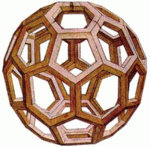 Conciencia, su pasado y su futuro
Conciencia, su pasado y su futuro
Why consciousness might confer an evolutionary advantage seems highly problematic, so long as one regards consciousness as a mysterious adjunct to the neural processes that actually drive behavior. If, however, one sees the profile of cognitive phenomena `characteristic' of consciousnessas being the natural but macro-level profile of computational phenomenacharacteristic of certain kinds of recurrent neural networks, then theproblem evaporates. For, as will be made evident, that family of computational phenomena immediately confers a walloping evolutionary advantage upon creatures that have it. Which explains, perhaps, why consciousness is so widespread throughout the animal kingdom. Once that simple but widespread pseudo-problem about the past is put aside, we can address a more intriguing problem :the future of consciousness. Since the idiosyncratic contentsof any creature's consciousness are determined by its cognitive history,by its cognitive needs, and by the categorial/conceptual framework thatthese factors gradually produce in it, then the contents of mature consciousness will, presumably, vary with changes in these latter factors. Since those cognition-shaping factors are already in the process of changing, at least for scientifically-educated humans, we must confront the near-future prospectof our learning to apprehend, to categorize, and to conceptualize our own conscious mental activities in ways quite different from, and more revealingthan, the well-worn habits of our current common-sense, `folk psychology'.This means, to put it bluntly, that (at least some of) the neurophysiological and neurocomputational states and activities of one's brain can be made to be just as `transparent to consciousness' as are the alleged `beliefs' and `desires' of current folk wisdom The take-home suggestion of this thought experiment is that the celebrated `subjectivity' of our cognitive states is not an ontological feature of those states, a feature that might sustain claims of Substance or Property Dualism. It is merely a relationalfeature of them, a matter of their being regularly grasped by an acquired regime of self-representation. In sum, of course we can learn to discriminate and recognize our own brain states with our existing capacitiesfor introspection. We have been doing it all our lives (our mental statesare brain states); we've just been using the wrong conceptual framework and the wrong vocabulary in which to do it.
9.set.1999
Pulsar tecla de vuelta
Glosario de Carlos von der Becke.